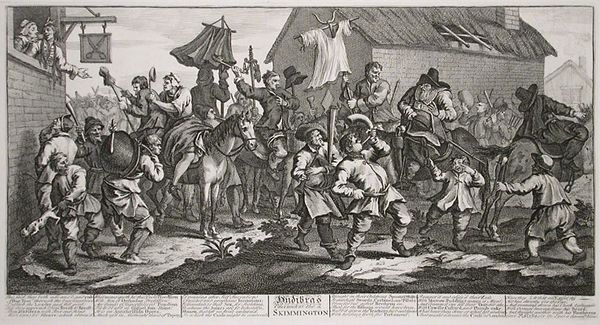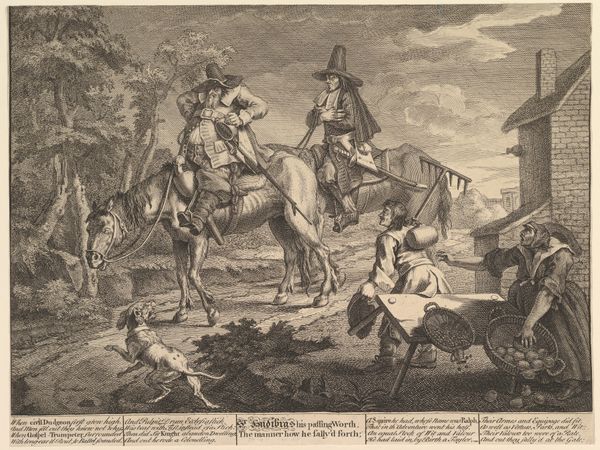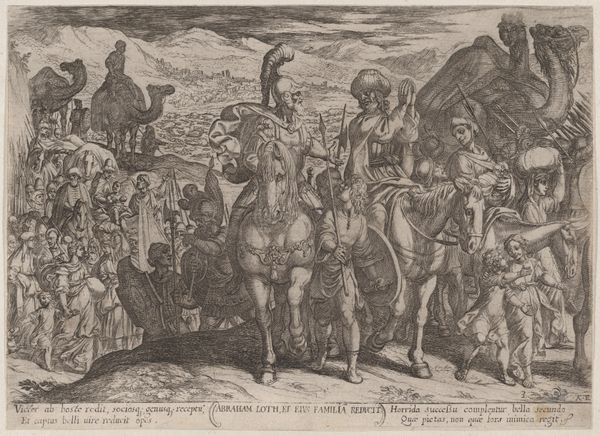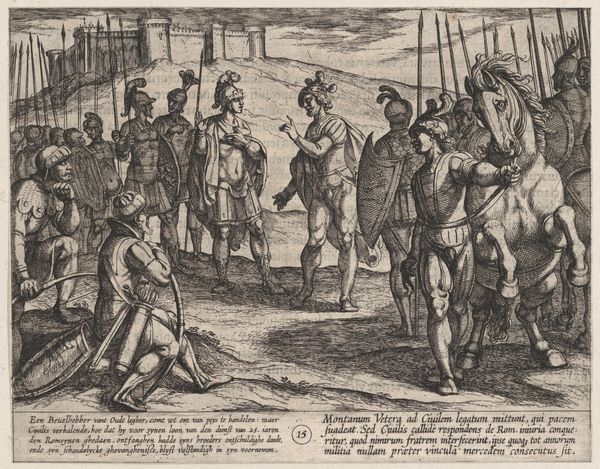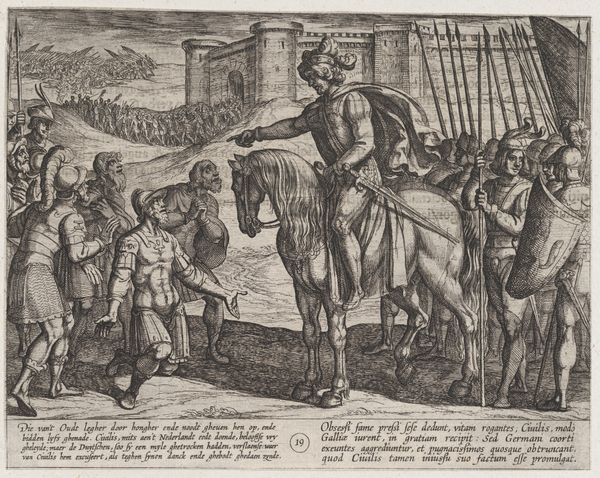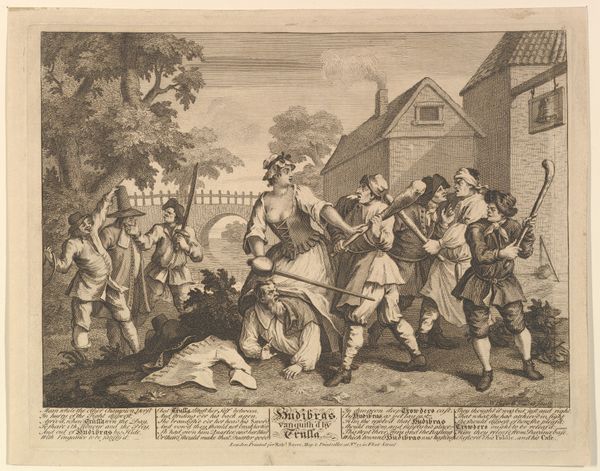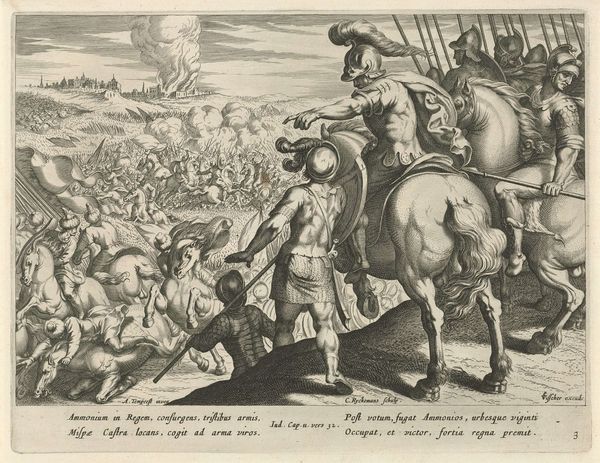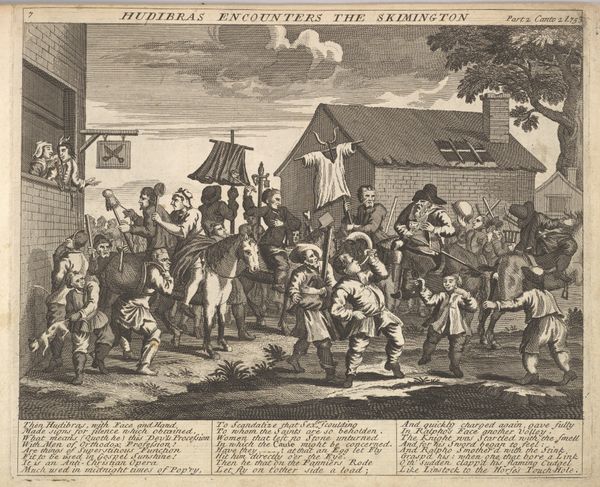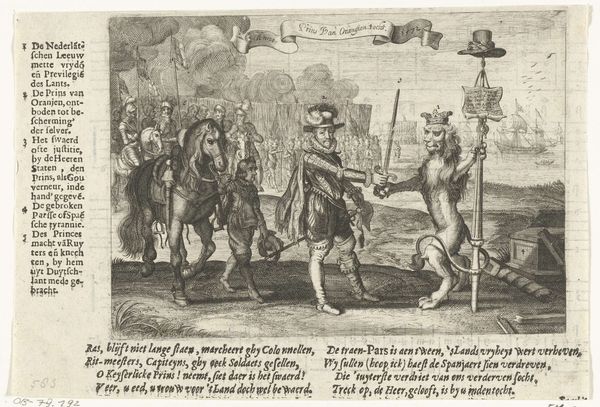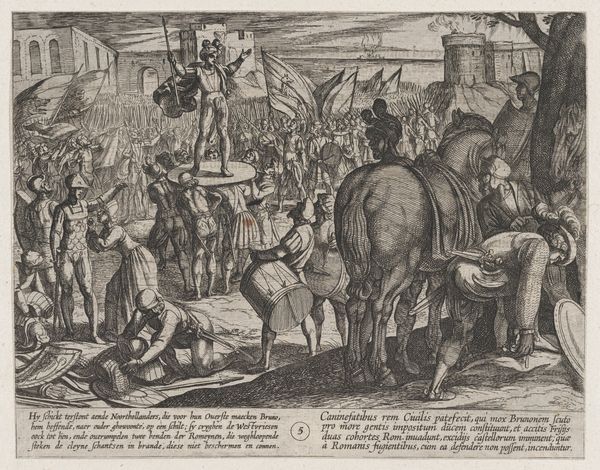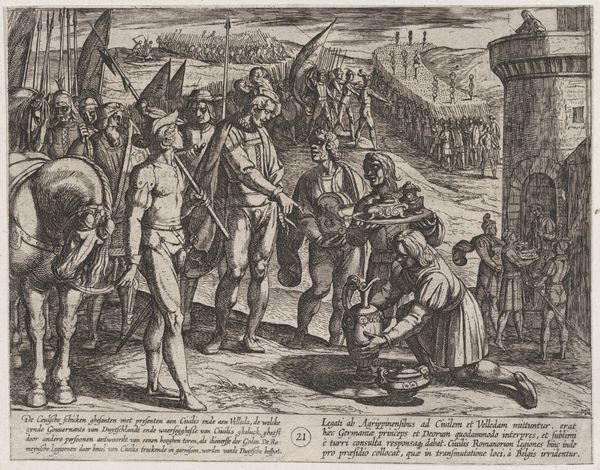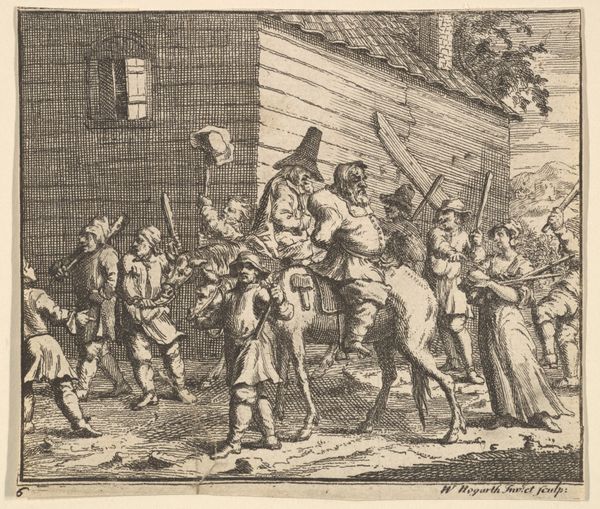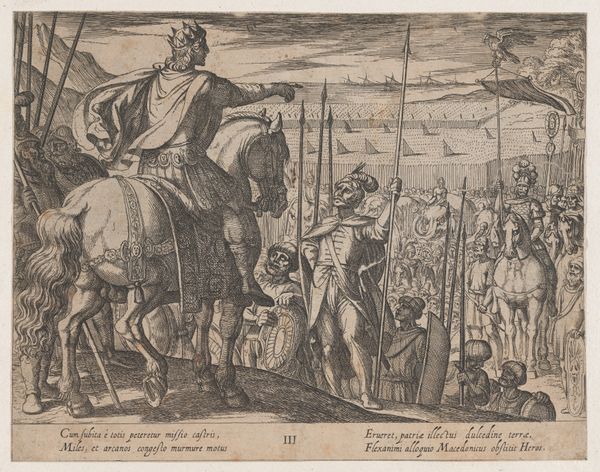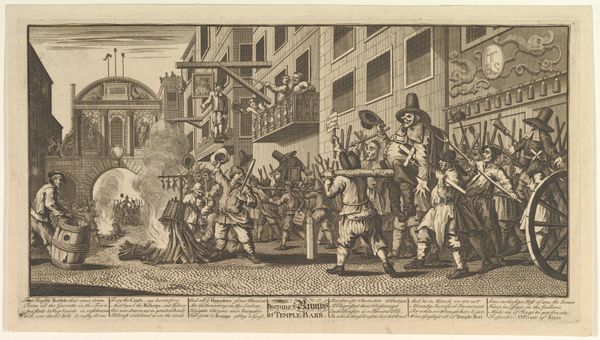
Hudibras and the Skimmington (Twelve Large Illustrations for Samuel Butler's Hudibras, Plate 7) 1725 - 1768
0:00
0:00
drawing, print, engraving
#
drawing
#
narrative-art
#
baroque
# print
#
caricature
#
genre-painting
#
engraving
Dimensions: plate: 10 13/16 x 20 1/4 in. (27.5 x 51.5 cm) sheet: 11 7/16 x 21 1/16 in. (29.1 x 53.5 cm)
Copyright: Public Domain
William Hogarth created this etching, "Hudibras and the Skimmington," using metal plates to transfer his design onto paper. The etching process itself involves considerable physical and chemical labor. A metal plate, likely copper, is coated with a waxy substance, and then the design is drawn, exposing the metal. Immersed in acid, the exposed lines are eaten away. The plate is then inked, and the surface wiped clean, leaving ink only in the etched lines. Finally, heavy pressure is applied to transfer the image to paper. Hogarth's choice of printmaking allowed for mass production, making his art accessible to a broad audience. The scene, a "skimmington ride," depicts a shaming ritual aimed at those accused of domestic misbehavior. Hogarth’s sharp lines capture the energy of the crowd, their expressions of mockery, and the social dynamics of the time. Understanding the work involved in the production of prints, and the social function they served, gives us a richer understanding of Hogarth's art. It bridges the gap between fine art and the wider world of social commentary, labor, and everyday life.
Comments
No comments
Be the first to comment and join the conversation on the ultimate creative platform.
